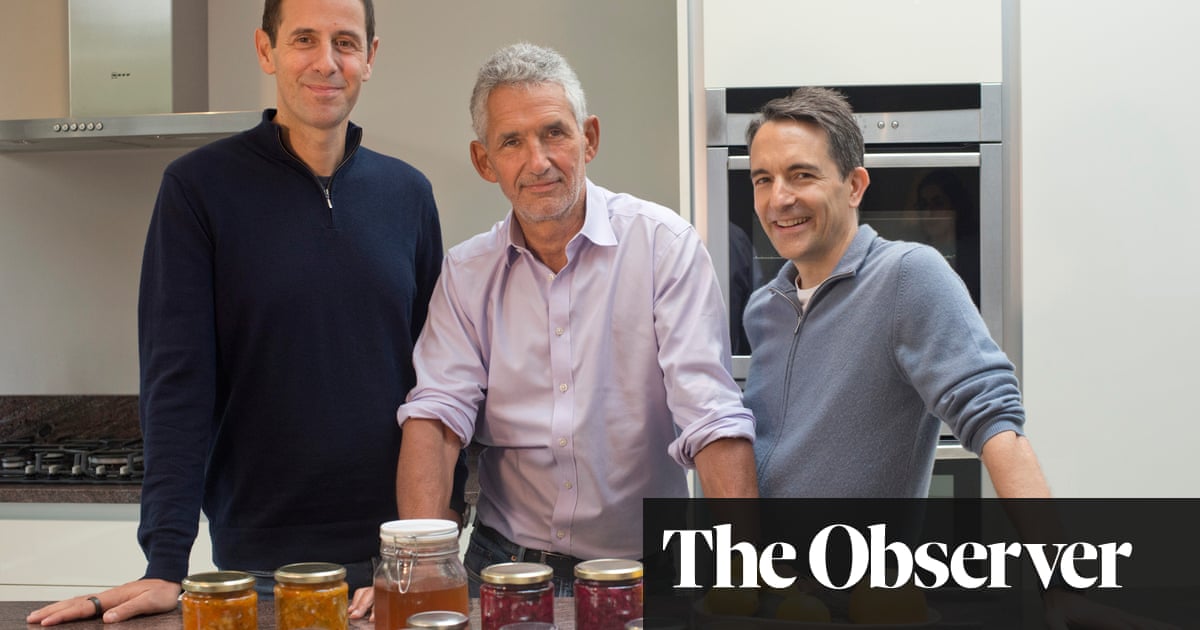
Early in the Covid-19 pandemic, Michelle noticed her teenage daughters were spending substantially more time on Instagram.
The girls were feeling isolated and bored during lockdown, the Arizona mom, who has asked to be identified by her first name to maintain her children’s privacy, recalled. She hoped social media could be a way for them to remain connected with their friends and community.
But as the months progressed, the girls fell into pro-diet, pro-exercise and ultimately pro-eating-disorder hashtags on the social media app. It started with “health challenge” photos and recipe videos, Michelle said, which led to more similar content in their feeds. Six months later, both had started restricting their food intake. Her eldest daughter developed “severe anorexia” and nearly had to be admitted to a health facility, Michelle said. Michelle attributes their spiral largely to the influence of social media.
“Of course Instagram does not cause eating disorders,” Michelle told the Guardian. “These are complex illnesses caused by a combination of genetics, neurobiology and other factors. But it helps to trigger them and keeps teens trapped in this completely toxic culture.”
Testimony from the Facebook whistleblower Frances Haugen last week revealed what parents of teens with unhealthy eating behaviors due to body-image fears had long known: Instagram has a substantial negative impact on some girls’ mental health regarding issues such as body image and self-esteem.
Internal research Haugen shared with the Wall Street Journal found the platform sends some girls on a “downward spiral”. According to one March 2020 presentation about the research, “32% of teen girls said that when they felt bad about their bodies, Instagram made them feel worse”.
Facebook has disputed the characterization of its internal research on Instagram. “It is simply not accurate that this research demonstrates Instagram is ‘toxic’ for teen girls,” the company said in a statement last month. “The research actually demonstrated that many teens we heard from feel that using Instagram helps them when they are struggling with the kinds of hard moments and issues teenagers have always faced.” The company has also criticized the internal presentation that the Wall Street Journal reporting was based on.
In light of the revelations, Facebook announced it would be pausing its Instagram Kids project and building parental supervision tools into the app. The company also said it would introduce features encouraging young users to take breaks from the app and nudging them away from harmful content.
But parents of teens with eating disorders who spoke with the Guardian after Haugen’s testimony said that finding out that Instagram’s parent company had research on Instagram’s impact had been infuriating.
They explained how their children had been directed from videos about recipes or exercise into pro-eating-disorder content and weight-loss progress images. And they said they struggled to regulate their children’s use of social media, which has become inextricable from their kids’ daily lives.
“They are responsible for triggering serious eating disorders in many individuals,” Michelle said about Facebook. “And after what we learned this week, it is evident they don’t care as long as they’re making money.”
‘There is nothing we can do about it’
Neveen Radwan, a parent living in the San Francisco Bay Area, said social media “has played a humongous role” in her 17-year-old daughter’s eating disorder. The teen had been harmed not only by content that was explicitly pro-anorexia or weight loss, she said, but also by edited photos of influencers and real-life friends.
“The second she opens the app, she is bombarded by photos that are filtered, that are manipulated,” Radwan said. “She is trying to attain something that is unachievable.”
Over the past few years, Radwan’s daughter has journeyed down a long road of recovery from a severe eating disorder. At one point, her weight was down to 74lb. Her heart stopped beating and she had to be airlifted to a specialized facility.
To help her daughter avoid the triggers she believes helped send her to the hospital, Radwan tried installing a number of safeguards on the girl’s phone. She uses built-in iPhone tools to keep her daughter from downloading apps without permission and monitors her online activity.
Recently, after a year and a half in treatment, Radwan’s daughter was allowed to have her phone back. But within 30 minutes, the teen had sneaked around the restrictions to log into Instagram from the phone’s browser, Radwan said.
When her daughter had opened the app, her algorithm had been right where she had left it, Radwan said, in the midst of an endless feed of unhealthy eating and diet content.
“Once you look at one video, the algorithm takes off and they don’t stop coming – it’s like dominoes falling,” Radwan said. “It is horrific, and there is nothing we can do about it.”
Experts say that Facebook, however, could do something about it. There are a number of proven tools that would prevent the spread of harmful content and misinformation, especially as it relates to eating disorders, according to Madelyn Webb, associate research director for Media Matters for America.
She explained that the algorithms recommend content similar to what users have shared, viewed or clicked on in the past – creating a feedback loop that some vulnerable teens cannot escape.
“But they will never change it because their profit model is fundamentally based on getting more clicks,” she said.
Haugen, in her testimony, suggested Facebook return to a chronological rather than algorithmically driven timeline on the platform to reduce the spread of misinformation and inflammatory content.
Facebook has said it works to minimize such content by restricting hashtags that promote it. But a report released in September by the advocacy group SumOfUs found 22 different hashtags promoting eating disorders still existed on Instagram at the time, and were connected to more than 45m eating disorder-related posts.
The report found 86.7% of eating disorder posts the researchers analyzed were pushing unapproved appetite suppressants and 52.9% directly promoted eating disorders.
Lucy, a mother in the Washington DC area who asked to be identified by a pseudonym to protect her privacy, said her daughter had struggled with an eating disorder at age 11 and had spent several years in remission.
But when her social media use started picking up during the coronavirus pandemic, the eating disorder re-emerged. Lucy said her daughter had changed quickly.
“By the time we found out she was getting this negative body messaging, it was too late – she was already into the eating disorder,” she said. “We watched our smart, lovely, caring, empathetic daughter turn into someone else.”
Lucy also has taken measures to limit her daughter’s social media use – banning her phone from her room at night, restricting time on social media apps, and talking to her about responsible use. But she can’t take away the device completely, as so much of her daughter’s school and social life relies on it.
“Having that phone is like having a 24/7 billboard in front of you that says, ‘Don’t eat,’” Lucy said.
Compounding the problem, she added, was the difficulty in finding good and affordable care for teens like her daughter. “In much of the country there are no therapists. There are waiting lists for treatment facilities. And while you wait, this disease gets stronger, and people get closer to death.”
The rate of eating disorders has risen sharply in recent years, in particular after the onset of the pandemic. A study published by CS Mott children’s hospital in Ann Arbor, Michigan, found that the total number of admissions to the hospital of children with eating disorders during the first 12 months of the pandemic was more than the average from the previous three years – 125 young people compared with 56 in previous years.
Meanwhile, access to treatment in the US has remained extremely limited. Hospitals have run out of beds and inpatient treatment centers have long waiting lists.
Although many parents see a direct line between Facebook and Instagram content and their children’s eating disorders, many struggle to leave the platform themselves.
Lucy, the mother in Washington, said she felt “extremely conflicted” about her Facebook usage because the closed groups for parents of children dealing with eating disorders had been “a godsend”.
She recalled a particularly rough day when her daughter lashed out at her after she urged her to eat a small amount of food. Crying and unable to sleep, Lucy posted to the group in the middle of the night in desperation.
“Suddenly dozens of people all over the world who knew what I was going through are telling me ‘you’ll get through this’ – it made a huge difference,” she said. “It also helps me when I can help other people. Because there is such a stigma around this disease, and this can be such a lonely road.”
In the US, the National Eating Disorders Association is at 1-800-931-2237. In the UK, Beat can be contacted on 0808-801-0677. In Australia, the Butterfly Foundation is at 1800 33 4673. Other international helplines can be found at Eating Disorder Hope












